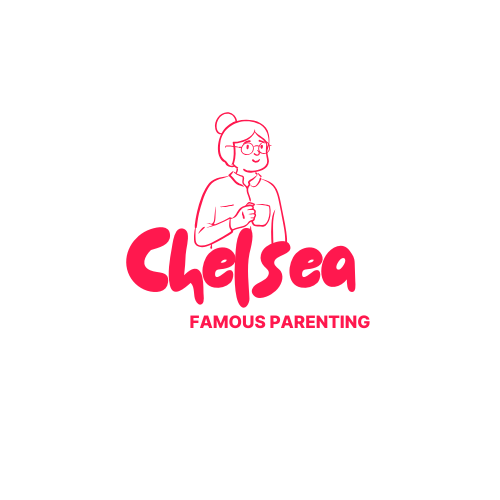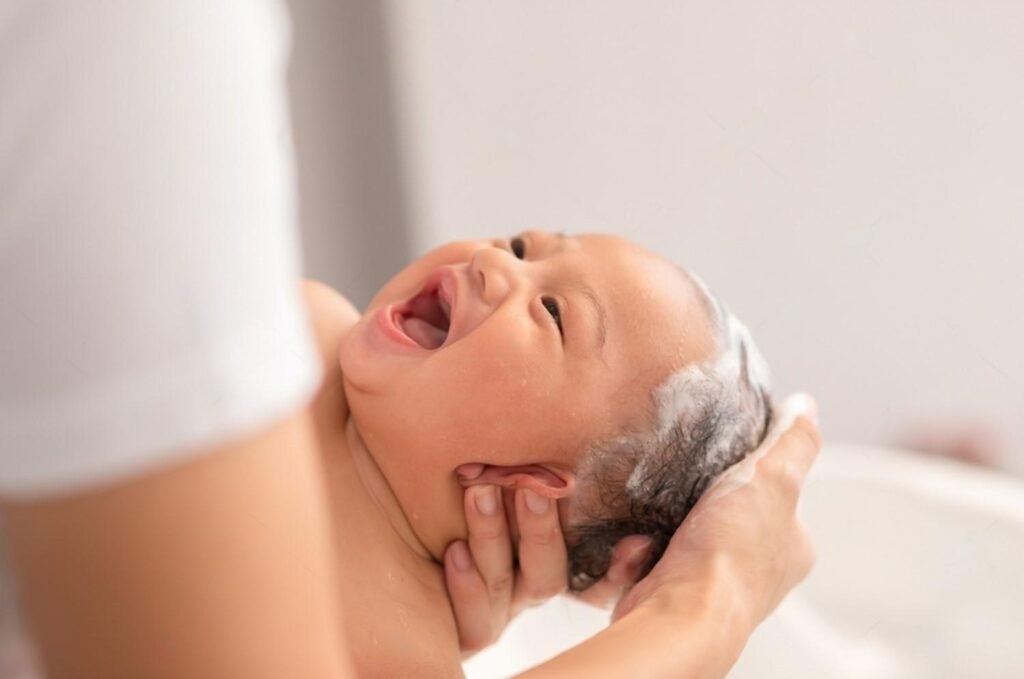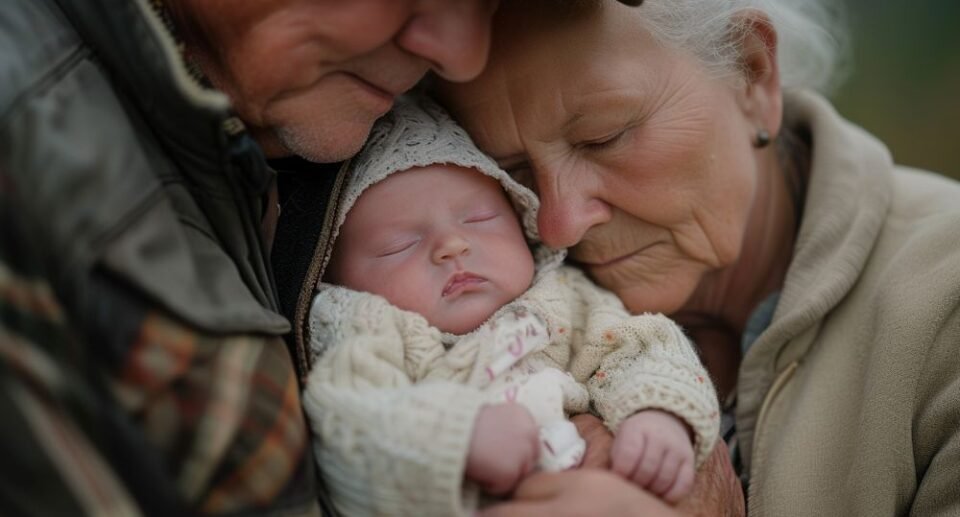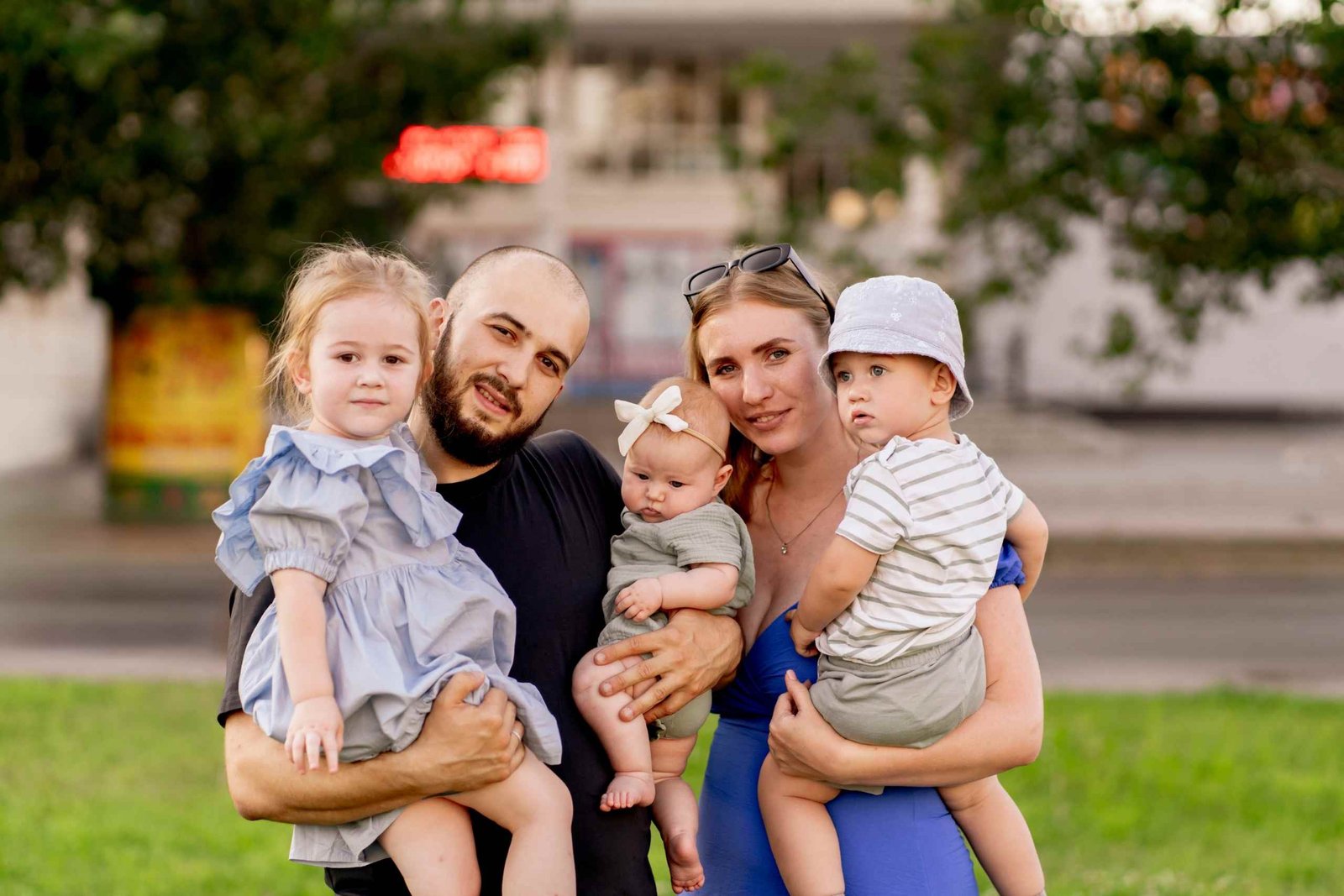How to Identify and Treat Baby Eczema Early
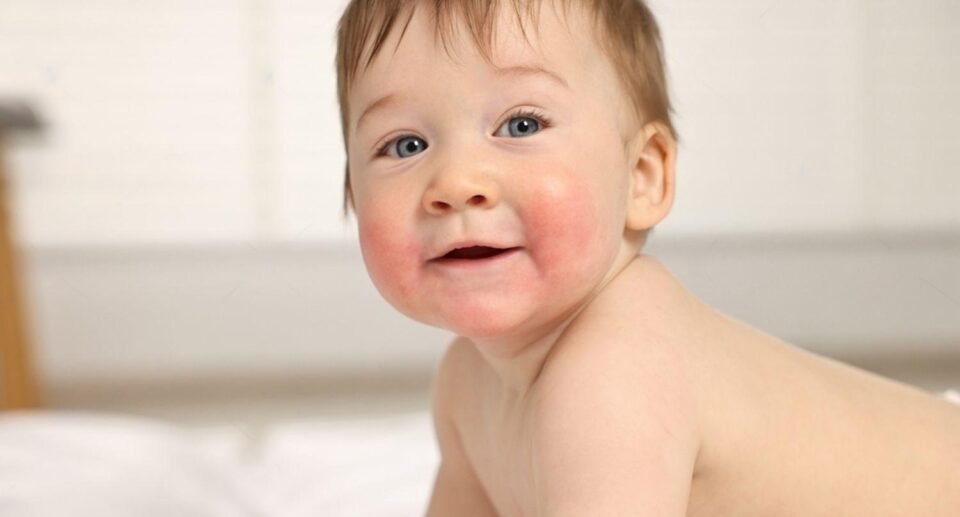
When we think of babies, we often picture them with soft, smooth, and flawless skin. So, when you notice red, itchy, dry rashes on their face and body, it’s pretty normal to be concerned, especially if you’re a first-time parent. These symptoms can sometimes be a sign of an underlying skin condition, such as eczema. Recognizing the signs of eczema in babies and treating them early can provide comfort and healthy skin for your baby. In this blog, we will explore How to identify and treat Baby Eczema early” and how using a gentle, skin-friendly Eczema Shampoo can help manage a flare-up and soothe the discomfort.
What is Baby Eczema?
Baby eczema, also known as atopic dermatitis, is a common, chronic, inflammatory skin condition. Even though anyone can experience eczema, it is more common among children below the age of 5; almost 15% of them experience it in the first 6 months of their life.
It can cause the skin to become dry, itchy, and inflamed. In babies, it usually affects the cheeks, forehead, knees, and elbows. One major concern that parents often have related to eczema is, “Is it contagious?”
The good news is it is not, so don’t worry, your baby won’t spread eczema to other babies on their next play date. Eczema can also sometimes resemble other skin conditions, such as dry skin, psoriasis, and rosacea, which is why it is essential to identify it so you can provide your baby with the right treatment and care on time.
Early Signs of Eczema in Babies
The early stage of eczema is known as acute eczema. During this, the symptoms may not appear severe; however, they can be very intense and discomforting for the baby. Also, early detection and treatment of the condition can prevent your baby’s eczema from becoming worse.
So if you are wondering, “What Does Baby Eczema Look Like?” here are a few signs and symptoms that you should look for:
- Redness on the skin
- Inflammation
- Dry, rough patches
- Flaky skin
- Intense itching
- Sensitive, warm skin
- Fluid-filled blisters and bumps
- Oozing skin (in severe cases)
These symptoms may vary for every baby; for instance, the redness may appear as pink or red rashes on babies with lighter skin tones and purple or brown in babies with darker skin tones.
So, if you are unsure about anything, it is best to consult a pediatrician to get an accurate diagnosis of the condition.
What Causes Eczema in Babies?
When you get to know that your baby is experiencing eczema, the first thing you would want is to get rid of it. But it is important to first understand what might be causing their eczema.
The exact cause of eczema is still not known; researchers believe that a combination of factors causes it. Some of the most common causes of eczema in babies are:
Genetics:
Eczema is often caused by genetics, which means that it may run in families. Babies who have a family history of atopic dermatitis, asthma, hay fever, and allergies are more likely to develop it.
Skin Barrier Dysfunction:
All of us have a top layer on our skin that is responsible for keeping moisture in and protecting it against outside irritants.
However, a baby’s natural skin barrier is still developing, making them more prone to experiencing eczema.
Environmental Triggers:
The environmental triggers may vary from person to person. When one has a weakened skin barrier, even the smallest of things, like extreme weather conditions, harsh chemicals in products, pollution, rough fabric, fragrances, pet dander, and dust mites, can trigger an eczema flare-up.
These factors altogether can give your baby the itching, irritation, and inflammation associated with eczema.
How to Treat Baby Eczema?
Early treatment of eczema can help reduce the severity of symptoms, minimize your baby’s sleep discomfort, and prevent the condition from worsening and developing into other complications, such as skin infections and permanent scarring.
Even though there is no permanent cure for eczema, here are a few ways in which you can manage its symptoms effectively.
Keep the Skin Clean
The best way to manage the symptoms of eczema is to follow a proper eczema skincare routine. The first step in this routine should be keeping your baby’s skin clean using a fragrance-free Shampoo and Body Wash for Eczema.
Even though regular baby shampoos and body washes can keep your baby clean, the truth is they often contain harsh chemicals such as fragrances, dyes, sulfates, and parabens that further irritate the baby’s sensitive skin and make their eczema worse.
This is why it is essential that you only use a shampoo like Happy Cappy Eczema Shampoo and Body Wash. Because it is developed by an expert paediatrician especially for babies with sensitive, eczema-prone skin.
This baby wash for eczema is free from any of those skin-irritating chemicals; instead, it is infused with licorice root extract, aloe vera extract, and oatmeal extract that help soothe and hydrate the skin.
Use it at least once daily to cleanse your baby’s skin and scalp, focusing more on the affected areas.
Don’t Forget to Moisturize
The next and most important step in the skincare routine should be to keep your baby’s skin moisturized as much as possible. Moisturizing the skin will not only help prevent dryness but also help strengthen the skin’s natural barrier by forming a protective layer on the skin.
Moisturize their skin at least twice daily with the help of a hypoallergenic baby eczema cream. Usually, once in the morning and once at night, before putting them to bed, because the itching mostly becomes intense at night.
Also, don’t forget to moisturize their skin after washing it or giving them a bath while the skin is still a little damp, because the skin is able to retain more moisture at that time. When choosing an eczema moisturizing cream for your baby, ensure it is specially formulated for babies and free from harsh chemicals.
Avoid the Triggers
Eczema usually becomes a lifelong issue and appears again and again in the form of flare-ups. These flare-ups are usually triggered by the environmental factors that we have mentioned above.
When the skin comes in contact with these triggers, your baby starts experiencing the itching, irritation, and red rashes associated with eczema. So you must notice what triggers are causing a flare-up or making your baby’s condition worse and try to avoid them as much as possible.
Prevent Scratching
Itching the eczema rashes can make the condition worse and lead to other complications such as skin infections and scarring. This is why it is important to prevent your baby from scratching the affected areas.
We know babies don’t understand it. Here are a few things you can do to prevent them from scratching.
- Keep their nails trimmed.
- Cover their hands with soft, breathable mittens or gloves.
- Keep their skin moisturized, especially the affected areas.
- Always clothe them in loose-fitting, soft, breathable clothes.
- Consult a doctor to soothe the baby’s itching with the help of wet wrap therapy.
Following these tips and tricks will not only help you manage your baby’s eczema but will also make your life easier, because we know how challenging it can be at times to take care of a baby.
Consult a Doctor
If you suspect that your baby’s condition is not getting better even after following a proper eczema routine or the symptoms are getting worse, then immediately consult a doctor. There is a chance that your baby might be experiencing another similar skin condition, such as cradle cap, psoriasis, or rosacea. Or they may require the use of strong prescription medication to make their condition better.
Conclusion
Recognizing and treating baby eczema early can make a huge difference in your baby’s comfort and health. So if you notice that your baby is experiencing itchy, irritated, inflamed, red skin or rashes, then consult a doctor to check if it’s eczema. And if it’s baby eczema, then follow a proper skin care routine that includes the use of an eczema shampoo and cleanser to keep your baby’s skin clean, and a baby cream for eczema to moisturize their skin. Also, if you know the triggers that might be causing your baby’s eczema flare-ups, then try avoiding them to prevent the condition from becoming worse. Also, always ensure that the eczema products you use for your baby are specially formulated for their sensitive, eczema-prone skin and are free from any skin-irritating chemicals.

Aashley Kai is the Editorial Director of Chelsea Famous Parenting and a licensed expert in early childhood education. She holds a Master’s in Child Psychology from the University of Texas Southwestern Medical Center and has worked as a preschool teacher and child therapist. Since joining in 2024, Aashley has been dedicated to creating well-researched, trustworthy parenting resources. Her work helps parents and caregivers foster nurturing, educational environments for children. Outside of work, she enjoys hiking and photography, capturing nature from a child’s perspective.
